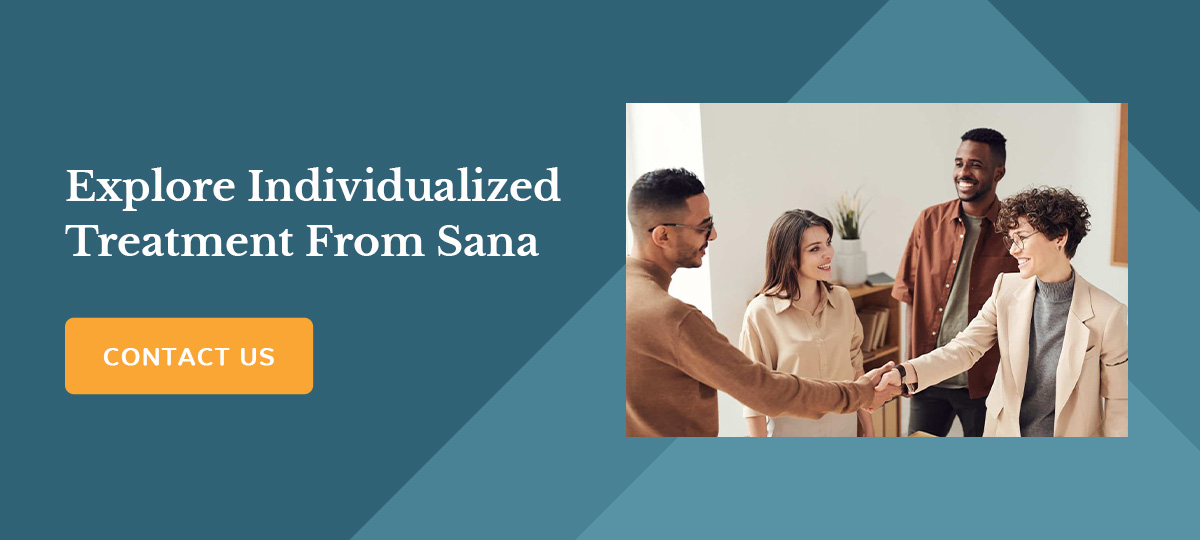Recovering from drug addiction has numerous benefits, but one of the things you might look forward to the most is an overall improvement in your well-being. Life after addiction can greatly improve your quality of life and help you make progress toward goals without the influence of harmful substances.
While the journey is challenging, keep these benefits of lifelong recovery in mind to help you get through it.
How Change and Recovery Affect Your Quality of Life
Drug addiction recovery is a long process, but its effects on quality of life are well worth it. As your body adjusts and you get further away from addiction, you may start to see the following effects:
Physical Benefits
You’ll likely find that your physical health sees significant improvements. Many substances cause harmful effects on your body, like nutrient deficiencies, poor sleep, and a higher risk for complications. Without those substances, you should feel much better. Your body has room to heal, with organs like your heart and lungs getting stronger. You may notice you have more energy, feel better rested, and are less anxious.
It may take a few weeks to feel the most significant physical effects of drug recovery. The extent and timeframe for these benefits will vary depending on the type of substance, the severity of your addiction, and your lifestyle. Many holistic rehabilitation techniques like fitness and nutrition help maximize physical health benefits.
New Capabilities
Without the grip of addiction, many people in recovery will find exciting new opportunities. Whether you want to focus on your work, relationships, interests, or something else, you’ll find many more options available. Over 80% of respondents in one large study had accomplished at least one achievement across different domains, like getting a new job or finishing a degree — and these achievements were associated with better quality of life and well-being.
You can do things like:
- Going back to school.
- Building a career.
- Volunteering.
- Opening a business.
- Finding housing.
- Helping others in recovery.
Life after rehab offers opportunities to build new skills and forge stronger relationships — whether mending old ones or making new ones. Substance abuse often complicates work, family, and social life, as when employers won’t hire someone with a drug problem or friends limit contact. After rehab, many of these doors will open again. Life-long recovery allows you to make decisions focused on your authentic goals and wants without worrying about the impact of drugs and alcohol.
Behavioral Benefits
Substance use often comes with behavioral effects like increased anxiety and mood swings. Without those effects, some aspects of your mental health may improve. However, many people use substances to cope with trauma or other mental health problems. People in recovery must prepare for the possible resurgence of these issues by developing healthy solutions with the help of a skilled mental health provider, particularly one trained in trauma-informed care.
FAQs on Life After Addiction
If you’re exploring addiction recovery, you probably want to know what to expect. Here are some answers to common questions about the before and after of drug addiction recovery:
What Percentage of People With Drug Addiction Recover?
You may hear some disheartening statistics about relapse rates, but these numbers don’t show the whole picture. Most people need a few attempts before achieving full remission of drug addiction. When we look at the bigger picture, about 75% of people recovering from addiction eventually meet their goals, even if they relapse a few times — 3-in-4 odds sound quite attainable.
And if you feel alone in your goals, know that almost a tenth of Americans have overcome an alcohol or other drug problem. Life after addiction is similar to life after rehab for alcoholism. It is both achievable and common!
How Long Does It Take to Get Over an Addiction?
Overcoming a drug addiction can take some time, depending on the substance and the severity of the addiction. Withdrawal timelines for physical symptoms usually range from less than a week to a few weeks, but the effects of some substances will take longer. More long-term symptoms like anxiety and irritability may take more time to overcome, but it happens eventually.
Does Addiction Last a Lifetime?
Addiction recovery is less like healing a wound and more like managing asthma. Most people must continue to control their addiction for the rest of their lives. Lifelong recovery means taking steps to stay in remission and avoid relapse — but relapse does not mean your treatment failed.
Returning to daily life might mean being exposed to the same stressors and triggers that led to addiction. When preparing for life after addiction, most people need a mixture of support systems to overcome these issues, such as:
- Therapy and accountability: A trained therapist can help you understand your stressors and triggers and develop strategies to address them. They will support you in the emotional challenges of the process, too.
- Recovery programs: The 12-step program created by Alcoholics Anonymous is one of the most popular addiction recovery programs, using peer support groups to help people achieve and maintain abstinence from harmful substances. Variations and alternative programs are also available. While 12-step programs are not necessarily religious, they emphasize guidance from a higher power. Self-Management and Recovery Training (SMART) is another popular model with a greater focus on self-empowerment rather than spiritualism.
- Support groups: Other peer support groups can complement rehab and help you access support from people experiencing similar challenges. Some focus on 12-step programs, but you can also find support groups for specific populations or issues, like LGBTQ individuals or those recovering from a certain type of drug.
- Healthy relationships: Your relationships may change after recovery. Some people may urge relapse, but others can support you in lifelong recovery. Those supportive people can be a powerful force in promoting change and recovery. A family-involved treatment strategy can incorporate loved ones in the rehabilitation process and show them how to help the recovering person more effectively.
- Hobbies and interests: Without time spent on drugs or alcohol, many people in recovery engage in other hobbies, like music, sports, or classes. These outlets may help you avoid relapse.
Avoiding relapse depends on having the right support for you and your needs. Before leaving rehab, your provider will help you develop a game plan.
Why Do Some People With Drug Addiction Never Recover?
Addiction is a complex and chronic disorder, with many factors that range from neuroscience and therapy methods to relationships. Difficulty recovering can come from many places. For some people, relapse can be a part of the process.
If relapse occurs while you’re in recovery, you still benefit from the periods when you do not use the harmful substance. Relapse offers an opportunity to learn from mistakes and hopefully prevent them in the future. Long-term support is essential.
Establish Support for Lifelong Recovery During Rehab
The addiction recovery process is highly unique to the patient, which is why an individualized rehabilitation program is so important. It can address co-occurring conditions and help you build an effective plan for life after addiction.
If you or a loved one is experiencing drug or alcohol addiction, consider treatment with Sana at Stowe. In the beautiful landscape of Stowe, Vermont, we offer a wide range of treatment services for addiction and maintain a Gold Seal of Approval® from The Joint Commission®. Our team of licensed and credentialed medical professionals emphasizes long-term recovery and uses evidence-based treatments to give you the tools and skills to achieve recovery for life.
Reach out to our team to discuss our safe, comfortable addition treatment options and learn more about how Sana at Stowe can help you on your journey.
Recreation Opportunities
Recreation is a critical part of any quality treatment schedule. Having a range of activities lets you exercise your mind and body, reduce stress and help you build lifelong healthy habits. If you’re wondering what it’s like in rehab, here are some of the indoor and outdoor activities you can work into your schedule:
- Outdoor recreation: Immerse yourself in nature for a relaxing activity. Wandering along a trail lets you interact with nature and stretch your body. Swimming at a pool is another outdoor activity you can include in your treatment schedule. Additionally, games like tennis make for good social interaction and exercise. Snowshoeing is also a possibility for winter-related outdoor time. Getting year-round outdoor time can help you connect with the natural world and reduce stress during your stay.
- Fitness and wellness: Your treatment center could also have a gym, allowing you to incorporate dedicated fitness time into your day-to-day. Sana’s wellness studio features exercise equipment like treadmills and bikes. Yoga is another excellent fitness activity you can work into your day. You’ll strengthen your body and mind while taking a break from your scheduled treatment blocks.
- Gardening and nature: Working with the Earth can also feature in your rehab schedule. Sana’s vegetable garden allows residents to learn gardening skills while coaxing plants to life. Connecting with nature through plants lets you add more purpose to your schedule and invest in creating something for yourself.
Explore Individualized Treatment From Sana
If you or a loved one is struggling with addiction, reach out to Sana for unmatched support and evidence-based, individualized treatment. Our comprehensive approach to addiction combines trauma-informed care, medication-assisted treatment, and holistic strategies to tailor your therapy to your unique needs. With yoga sessions, a pool, gardening, and more, you have plenty of recreational activities to try out in between your sessions. Our wide range of services and recreation activities all get you the support you need on your recovery journey.
At Sana, we understand that recovery is unique for each person. We strive to accommodate your needs as you work through your treatment. To help support you, we offer data-driven outcomes, luxurious accommodations, a rapid admissions process, and unmatched care. Recover in the highest-quality facilities at the foot of Mount Mansfield in Stowe, Vermont. Our dedicated team is committed to providing the best care and support throughout your stay here and beyond.
Take the next step and contact Sana online today! We’re here to guide you every step of the way on your path to lasting change and a restored quality of life.
Sana is Here to Help
Sana is here for you and your loved ones. Sana at Stowe provides high-quality treatment for those struggling with substance abuse, alcohol addiction, trauma, and PTSD. Our compassionate and professional staff is dedicated to giving our patients the recovery experience they deserve in a safe and healing environment. To learn more or to get started on your journey to recovery today, give us a call or visit our contact form.
Click here to call us: 866-575-9958



